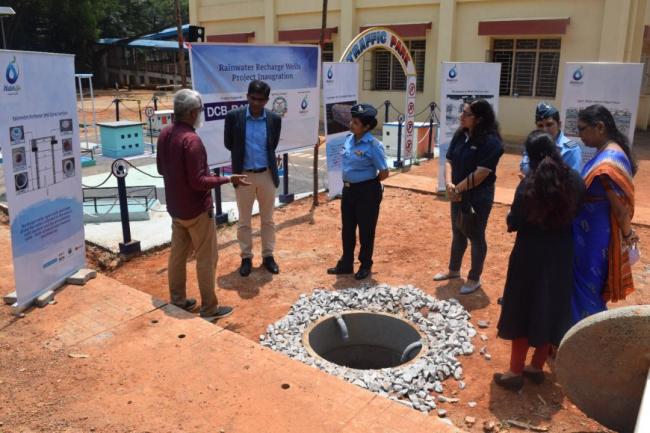DCB Bank Inaugurates 25 Rainwater Recharge Wells in Bengaluru

The project will help conserve and rejuvenate groundwater sources while also providing livelihood opportunities for local well-diggers who have been struggling to find work
Bengaluru (Jalahalli): DCB Bank today inaugurated and symbolically marked the commencement of a sustainability project of 25 Rainwater Recharge Wells (RRWs) in conjunction with the India Cares Foundation. The inauguration was presided over by Mr Rafiq Somani – Director, Board of Directors, DCB Bank Ltd. Commencing at Jalahalli, the pilot project will eventually be expanded to other parts of Bengaluru.
RRWs are a powerful groundwater management tool that helps protect and restore water ecosystems such as rivers, lakes, wetlands and aquifers. In Bengaluru, RRWs will help control urban flash floods while compensating for the diminished recharge in the water ecosystem through the development, monitoring and revival of shallow unconfined aquifers, which traditionally supplied household water to the city. It will also help move excess salts that accumulate in the root zone to deeper soil layers or into the groundwater system, allowing tree roots to increase water saturation in the groundwater, reducing rainwater runoff.
Since RRWs are dug manually, through this initiative the Bank aims to offer livelihood opportunities to the traditional well-diggers’ community, who are struggling to find regular work that suits their skill capabilities. Each RRW will require at least 3-4 people to construct and manage, providing well-diggers with enough income to sustain their families for a month under this initiative.
Bengaluru has been experiencing chronic groundwater scarcity issues in recent years. Through this project, DCB Bank hopes to help in preserving the city’s natural water sources. RRWs are a simple and powerful symbol that can convey and achieve tangible goals for the city’s rainwater and groundwater management system. The project’s overall goals are to conserve and restore aquatic habitats as well as provide jobs to local well-diggers.




